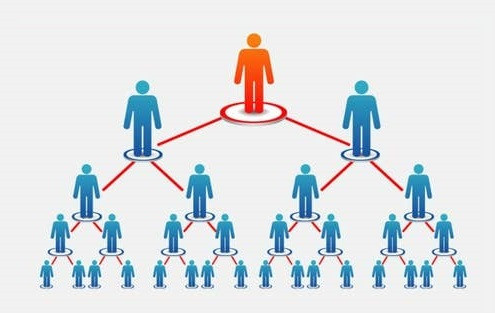
Network marketing is a marketing strategy that relies primarily on hiring independent representatives to carry out marketing operations in cooperation with the distribution team and a selected group of sales representatives, in return for a certain financial percentage in addition to the value of the sale.
What is meant by network marketing:
It is a term that denotes a business model that relies on independent marketing representatives who work most of the time remotely to complete sales, either by building a network of business partners or hiring sales representatives to help create lists of potential customers and complete sales operations. Network marketing is called by several names:
1. Multi-level marketing.
2. Cellular marketing.
3. Affiliate marketing.
4. Direct marketing to consumers.
5. Referral marketing.
Network Marketing Principle:
Companies that follow the network marketing model often employ several layers of sales representatives, in addition to encouraging these sales representatives to create their own networks of sales representatives, so the creators of the new layer earn a percentage of commission on their own sales in addition to the sales made by the representatives in the layers they have created, and over time each new layer can create another layer that contributes more commission to the person in the upper layer as well as the middle layer, so the profits of the sales representatives depend on both; recruitment and product sales.
Types of network marketing:
1. Single-level network marketing: In this type of network marketing, the products and services of other companies are sold without the need to rely on additional distributors, and they register in the program affiliated with an institution with a single-level network marketing to sell their goods and services so that all salaries are direct sales.
2. Two-level network marketing: This type of network marketing depends on employing other layers of sales representatives and distribution networks; but the salary does not depend on that alone; For sales, the marketer, the direct distributor, and all partners or distributors who are involved in the work in other layers are paid.
3. Multi-level form of network marketing: This form is one of the most common and widespread types of network marketing around the world. It is a marketing network that relies entirely on distribution that includes more than two levels. It relies on strategies such as demand-based communication and naming-based communication. Many multi-level network marketing services enable marketers to earn more and increase employment levels up to five levels, which means providing many job opportunities.
Characteristics of successful network marketing:
- Helping to increase value through interaction and support.
- Using advanced systems in work.
- Relying on the right technologies.
Advantages of network marketing:
1. An easy way to share the marketer's favorite goods or services.
2. Providing job opportunities.
3. The ability to work remotely.
4. A good opportunity to increase income.
5. Ease of implementing work.
6. Providing supervisors to help and guide.
Disadvantages of network marketing:
1.Most marketers do not generate income.
2. Direct dealing with customers when completing the sale.
3. Slow growth.
4. Frequent rejection.
5. Some deals contain deception.
6. Network marketing is similar to pyramid marketing based on fraud and deception.
Many jurists and Islamic bodies have prohibited working in network marketing, due to the principle of its science, which is based on usury, gambling, and deception, as the subscriber pays an amount of money in exchange for obtaining large amounts later, and in fact the amount of money may increase or decrease from the amount he paid at the beginning, and if the work fails, the investor may lose all of his money. This type of work falls under the suspicion of gambling and deception, in addition to the fact that the process of selling products is just a formality and the main goal of this is to obtain the commission only, as the subscriber usually relies on bringing new distributors to obtain the commission and rewards.

14/08/2024

14/08/2024

20/08/2024

31/08/2024

17/08/2024

17/08/2024

18/08/2024

25/08/2024

30/08/2024

18/08/2024

30/08/2024

25/08/2024

01/09/2024

20/08/2024

30/08/2024

17/08/2024

22/08/2024

30/08/2024

26/08/2024

14/08/2024